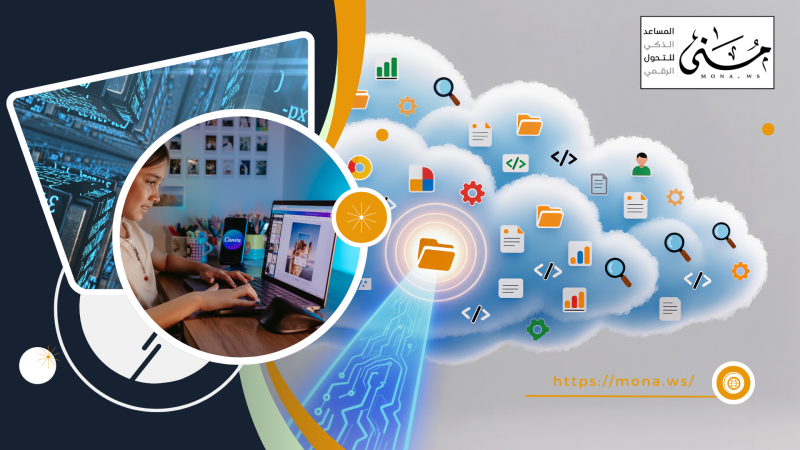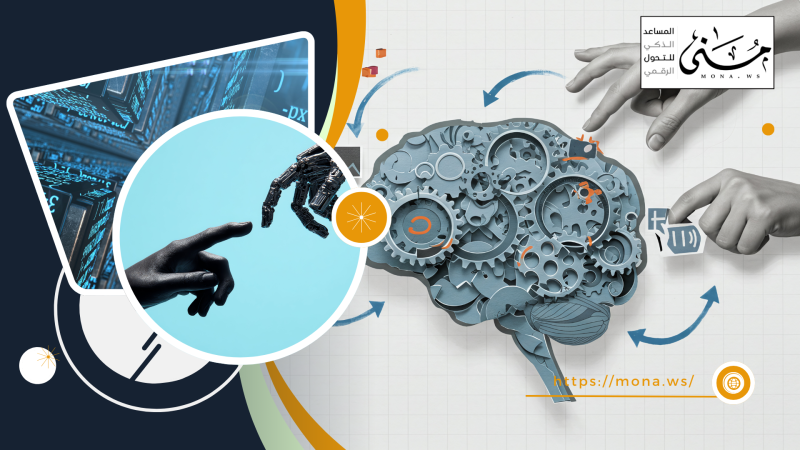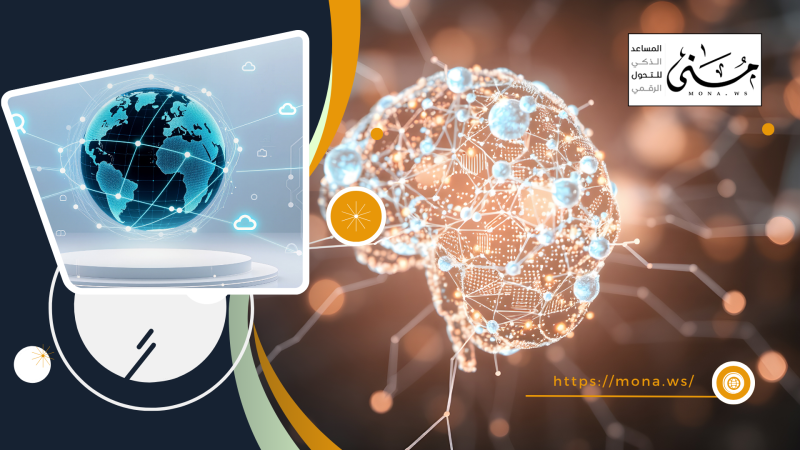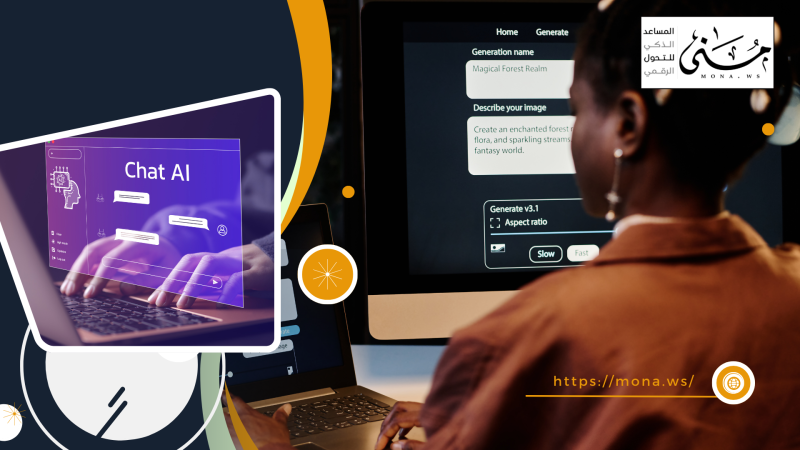In the modern marketplace, product or service quality alone is no longer enough to win customer loyalty. What distinguishes brands today is the customer experience : How does the customer feel during their interaction with the company? Do they receive a prompt response? Do they feel that their needs are understood and valued? This is where
customer relationship management (CRM) systems come into play. A vital role in mapping this feeling and building it intelligently .
CRM systems were used to document customer data, record calls, and track tickets. Today, however, they are evolving into integrated, intelligent platforms that manage every moment of the relationship between an organization and its customers. With the advancement of artificial intelligence, behavioral analytics tools, and real-time personalization capabilities, these systems have become the beating digital heart of the overall customer experience .
In light of these developments, the role of CRM is changing from a recording tool to a prediction engine. It doesn't wait for a customer to complain; it anticipates what they need before they ask . It doesn't simply display the same message to everyone; it designs a personalized experience for each customer based on their history, behavior, and preferences . This makes the future of CRM not just management, but also leadership in relationships and creating interactive value .
CRM Systems – From Documentation to Intelligent Interaction
customer relationship management (CRM) systems were Simple tools for recording customer contact information and documenting calls and meetings. Their primary goal was to ensure customer information was not forgotten and to provide a reference for sales and customer service teams. These systems were essentially an enhanced digital archive , supporting workflow without physically interacting with it .
But this model, while organizationally useful, was not sufficient to keep up with today's customer: a customer who moves between multiple channels, expects an immediate response, and demands an experience tailored specifically to him .
Shifting towards omni -channel interaction
With the expansion of digital channels (such as email, live chat, social media, and smartphone apps), the need for a CRM system that can track the customer journey across every touchpoint has become essential. A customer no longer simply calls by phone; they send a Twitter inquiry, track the status of their order in an app, or even leave a review on an external website. Modern systems have evolved to provide a unified, comprehensive view of every interaction , regardless of the channel .
This integration enabled teams to understand the full context of the customer experience and respond in a personalized and rapid manner, improving satisfaction levels and building stronger loyalty bridges .
From Response to Proactivity: The Stage of Artificial Intelligence and Analytics
CRM systems not only records what has happened, but also predicts what could happen . Thanks to artificial intelligence, these systems are now capable of :
- Predicting when a customer will contact you next
- Suggest the most suitable products or solutions for him
- Determine the degree of his satisfaction or the likelihood of losing it
- Send automated messages at the most appropriate moment
With this, the customer experience transforms from a mere interaction with a company to an intelligent dialogue with a system that understands and interacts with them continuously .
CRM is not a database... it's a platform for an integrated experience
, CRM is no longer just a tool used by sales or support personnel; it is the central infrastructure of the modern customer experience . It is the system that connects marketing to sales, support to delivery, and insight to response .
With this expansion of the role, customer relationship management transforms from a support function to a strategic function that determines the level of customer satisfaction and decides who will return and who will leave .
The future of CRM is in deep personalization of the customer experience.
In an age of targeted advertising and personalized content algorithms, customers no longer accept uniform experiences or generic services. Customers now crave an experience that resembles them, understands their needs, and speaks to them in their own language . This is where modern CRM systems come in , transforming from organizational tools into real-time personalization engines driven by data and behaviors .
Predictive Analytics: Predicting a Customer's Next Move
Using artificial intelligence and machine learning techniques, CRM systems can predict what a customer will need based on their history and behavior. For example :
- If a customer repeatedly interacts with a particular product page without purchasing it, the system can automatically send a personalized offer .
- If a customer exhibits behavior similar to customers who have previously left, they can be incentivized with a retention offer or special content .
- If a service renewal date is approaching, you can send a smart reminder with phrases based on their preferred communication style .
These capabilities transform the system into an intelligent assistant that anticipates the customer's needs and provides a solution before it is requested .
Personalize content and offers based on the moment and context
CRM systems don't just analyze historical data, but also leverage real-time contextual data such as geographic location, device usage, time of day, and even the mood predicted by writing tone. This makes messages more accurate, offers more relevant, and the experience more personalized .
For example :
- A customer browsing on their mobile phone in the evening may receive a shortened offer in a lightweight format .
- A customer who enters the site from a specific city gets a special offer for that region .
- A customer who uses angry words in their complaint is redirected to an employee experienced in calming and empathizing .
Artificial Emotional Intelligence: Sentiment Analysis for Deeper Personalization
Some systems have started using sentiment analysis. (Sentiment Analysis) via email or conversations, to understand the customer's psychological state. If they are feeling frustrated or angry, they receive soothing content and more sensitive personal communication. If they are satisfied, they are motivated with rewards, reviews, or referrals .
This approach elevates CRM to a higher level of intelligence, where the customer is not evaluated based solely on what they do, but on how they feel .
CRM integration with contact centers and support platforms
One of the biggest challenges in the customer experience is the disconnect between different channels. A customer speaks with a contact center today, emails tomorrow, and may even file a complaint on social media sometime later. If these interactions aren't linked to a unified system, the organization will appear to the customer as if it "remembers nothing," eroding trust and increasing frustration .
Modern integrated CRM systems address this challenge at its root, by connecting all points of contact – phone, email, chat, app, website – into a single interface that provides a unified and comprehensive view of the customer's entire history .
Faster support... thanks to a complete customer history
When a call center or technical support employee receives a call, they don't need to ask the customer for their details or what happened previously, because their entire history—from previous complaints, orders, purchases, and even reviews—is immediately visible to them .
This achieves :
- Faster response because the employee understands the problem without having to explain it again.
- Better customization of solutions to customer context
- Reduce customer pressure and reduce call time
Intelligent recommendations for solving problems in real time
CRM systems provide support teams with intelligent recommendations during the conversation, such as :
- Relevant knowledge base articles
- Solution steps proven by previous clients in the same situation
- Direct escalation to a manager or specialist when a risk pattern appears
These tools help even new employees deliver a high level of service, reducing the need for manual interventions or delays in resolution .
Automating support and order routing
CRM integration with AI, many initial support stages can be automated, such as :
- Automated responses via chatbots
- Classify tickets by issue type and priority
- Automatically transfer the request to the appropriate department
This turns the CRM into a smart coordinator that organizes the internal workflow and ensures that each order reaches the right place as quickly as possible .
From Support to Improvement: Capitalizing on Every Interaction
What distinguishes full integration between CRM and support is that every interaction becomes an opportunity for learning and improvement . Conversations and tickets are analyzed to identify recurring patterns and suggest improvements to products, services, or training .
Here, CRM becomes not just a support tool, but an organizational development tool .
DocSuite CRM as a Model for Intelligent Relationship Transformation
As organizations race to improve the customer experience, everyone is looking for a CRM system that doesn't just track data, but makes a tangible difference in every interaction . That's where DocSuite CRM comes in. As an advanced model that embodies the concept of modern CRM : an intelligent, flexible, integrated system, oriented towards personalization and prediction .
Manage customer files intelligently and smoothly
Allows DocSuite CRM gives every employee access to a unified digital customer file, containing contact information, purchase history, previous interactions, orders, feedback, and even technical support ratings. There's no need to navigate multiple systems or request information from other departments; everything you need to understand and address your customer is right there in front of you, in a single, instant, and easy-to-use interface. This speeds up customer engagement and enhances your ability to make informed decisions during the conversation .
Tailor marketing campaigns based on interest and behavior
You could DocSuite CRM creates marketing campaigns based on analyzing customer interaction with products or content. Instead of sending generic offers, you can customize marketing messages based on customer activity: What did they view? When did they interact? What was their last purchase? All of this is automated, delivering the right offer to the right person at the perfect time. This significantly increases open, click, and conversion rates .
Direct integration with support and ticketing platforms
He provides DocSuite CRM integrates directly with technical support systems, meaning that any ticket opened via phone, email, or chat is automatically linked to the customer's record. Agents can track the resolution process, review past tickets, and even assign issues based on their type and priority. This speeds up response time and provides customers with a seamless, integrated support experience, without having to re-explain the problem each time .
Customer satisfaction and loyalty trends analytics
Through analysis tools in With DocSuite CRM , organizations can accurately track satisfaction and loyalty metrics, such as resolution time, complaint rate, after-service ratings, and repeat engagement rates. Predictive reports can also be generated to identify customers at risk of churn or who are dissatisfied, enabling them to be proactively addressed with personalized offers or personalized support .
The result: decisions driven by data, not impressions .
Flexibility to customize according to the nature of the activity
Whatever your business, DocSuite CRM allows you to customize the system to suit your specific needs. You can modify forms, create custom fields, build reports tailored to your industry, and easily customize team permissions. This makes it ideal for diverse industries such as education, services, government, and technology, where there's no need to reinvent the wheel—instead, you can build a system that perfectly reflects your reality .
A system that helps the team...doesn't burden it.
Interface DocSuite CRM is designed to be simple and quick to learn, with a focus on user experience. Employees don't need lengthy training or complex steps to create a ticket or track a customer's status. Everything is designed to be intuitive, flexible, and efficient—from navigating menus, to customizing reports, to integrating with email or phone. This reduces technical fatigue and encourages teams to fully utilize the system .
Challenges to Adopting a Fully Predictive CRM
Despite the promise of modern CRM systems for a more personalized and efficient customer experience, achieving a fully predictive and proactive CRM model requires overcoming a set of fundamental challenges. These challenges are not impossible, but they require strategic awareness and deep technical and cultural planning .
Data quality and standardization across channels
For CRM to accurately forecast, the data it relies on must be unified, up-to-date, and reliable. However, in many organizations, data is distributed across multiple systems, unconnected, or duplicated. The absence of a unified data structure weakens analytical and forecasting capabilities and can lead to incorrect decisions or inaccurate allocation .
Resistance to change within teams
Adopting predictive CRM requires significant changes in the way marketing, sales, and support teams operate. Some employees may view automation as a threat or find it difficult to adapt to intelligent systems. Therefore, effective change management and awareness and training programs are essential to highlight the benefits and reduce resistance from internal teams .
Data security and customer trust
CRMs become smarter, the amount of personal and behavioral data they collect and analyze increases. This raises serious privacy concerns and makes customers more sensitive to the use of their data. It's essential to build a robust security architecture, adhere to international compliance standards ( such as GDPR) , and communicate privacy policies transparently to customers .
Integration of legacy systems with smart infrastructure
Many organizations still use legacy systems to store customer data or perform operational tasks. Integrating these systems with a modern AI-based CRM isn't always seamless and may require a digital restructuring or the development of flexible APIs.
A true analytical understanding of data, not just superficial use.
Even in organizations with advanced CRM systems , the benefits may be limited to simple operational uses: creating a ticket, sending a message, storing a record. The use of predictive analytics, satisfaction indicators, and behavioral patterns is still less common. Full utilization requires a shift in mindset , where data is treated as a strategic asset rather than simply a tracking tool .
Over-reliance on automation without a human touch
In some cases, relying solely on AI and automation can lead to the loss of the human side of customer engagement, especially in emotional situations or complex complaints. The challenge here is to strike a balance between automated personalization and human interaction, so that the customer feels understood, not merely treated .
in conclusion, Customer relationship management systems have evolved from data documentation tools to strategic leadership platforms with the ability to shape the customer experience at every stage: from the first interaction to after-sales support, through every moment of contact. With the integration of artificial intelligence, it has become possible to personalize content, predict behavior, and deliver real-time solutions with unprecedented efficiency .
But the success of this transformation depends not only on technology, but also on a new corporate culture that recognizes the customer as not just a target audience, but a partner in the journey. It also depends on the quality of data, systems integration, and teams' ability to use intelligent analytics to achieve a real impact on customer satisfaction and loyalty .
In this article, we've reviewed how systems like DocSuite CRM can: To represent a qualitative leap in the way of understanding and managing the relationship with the customer, through its integration, intelligence, and flexibility that can be customized according to the nature of each organization .
Ultimately, it can be said with confidence that the future of competition among brands will not be decided solely by products, but rather by who delivers a deeper, faster, and more customer-friendly experience . Modern CRM is the gateway to this future .





Comments
Add New Comment